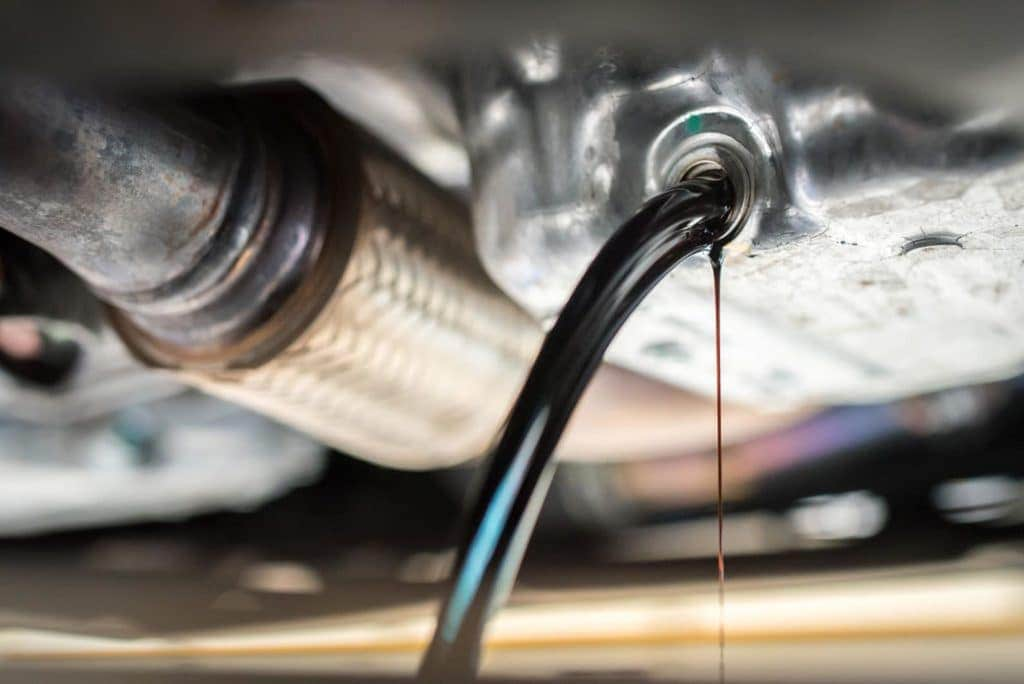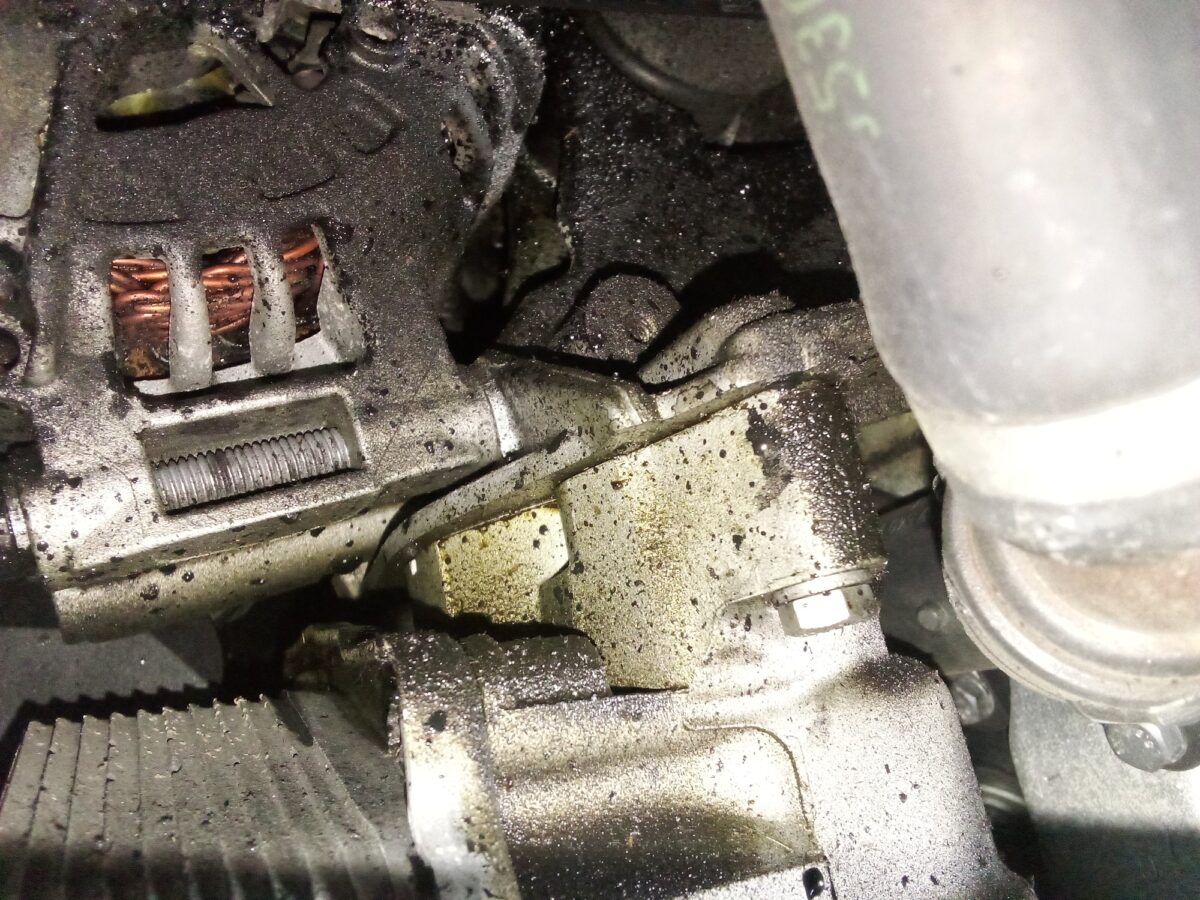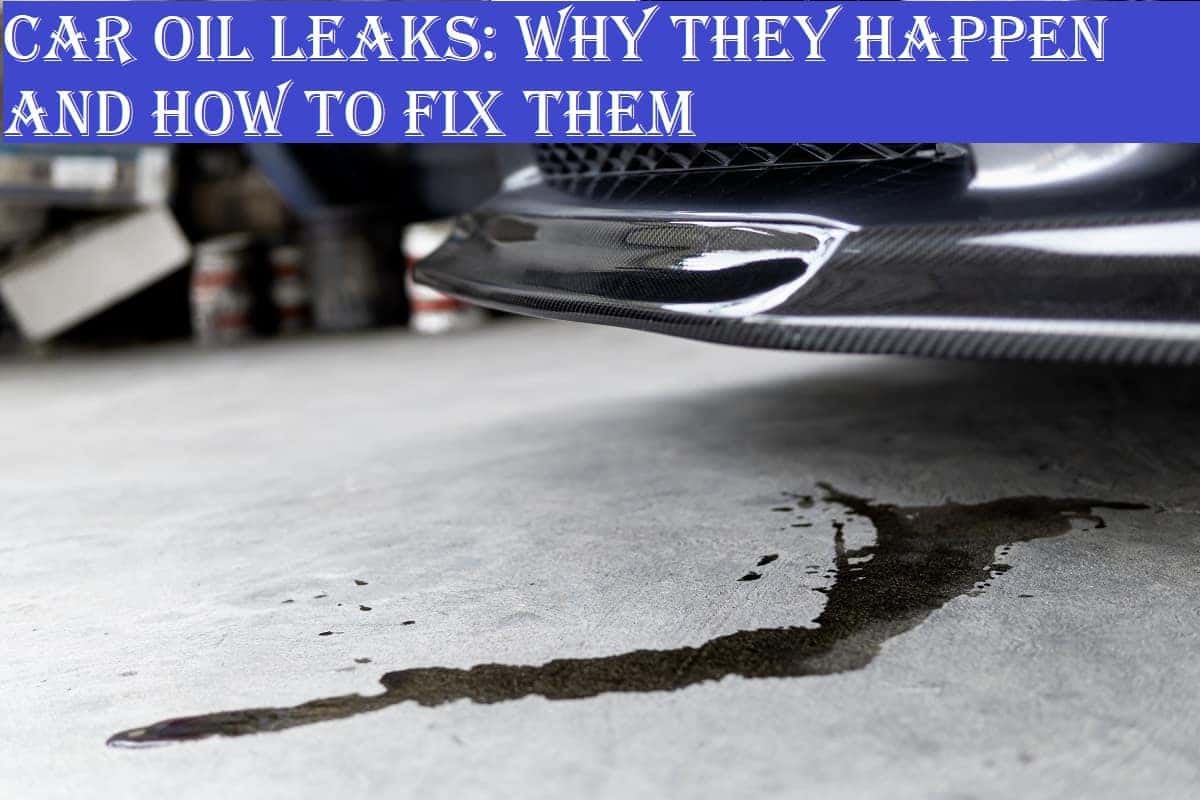Have you ever noticed mysterious spots under your car or a strange smell while driving? These could be signs of oil leaks in your vehicle, something that many drivers overlook until it becomes a serious problem.
Ignoring oil leaks can lead to costly repairs and even put your safety at risk. You’ll learn how to spot the early warning signs of oil leaks so you can protect your car and avoid unexpected breakdowns. Keep reading to discover what to watch for and how to act fast before a small leak turns into a big headache.

Credit: www.bramanmiamihyundai.com
Common Oil Leak Symptoms
Oil leaks in vehicles can cause serious engine problems. Spotting the signs early helps prevent damage. Watch for common symptoms to keep your car safe.
Here are three key signs that your vehicle may have an oil leak. Check your car regularly to catch these issues fast.
Visible Oil Spots
One clear sign of an oil leak is visible oil spots under your vehicle. These spots usually appear on the ground where you park. The oil may be dark brown or black and feels greasy.
- Check the driveway or garage floor for fresh oil stains.
- Look under the engine area for wet or oily patches.
- Inspect the oil pan and drain plug for leaks.
- Examine hoses and gaskets for cracks or damage.
Burning Oil Smell
If you smell burning oil while driving, it may signal a leak. Oil dripping onto hot engine parts can create this strong odor. This smell often means oil is leaking near the engine block or exhaust.
| Cause | Effect |
| Oil leak on exhaust manifold | Burning oil smell inside or outside car |
| Leaking valve cover gasket | Oil drips cause smoke and smell |
| Damaged oil pan | Oil leaks and burning smell from under car |
Smoke From Engine
Smoke coming from the engine area is a serious sign of an oil leak. The smoke is usually blue or gray and means oil is burning on hot parts. This can cause engine damage if not fixed quickly.
Common causes of smoke from an oil leak:
- Oil leaking onto the exhaust pipe
- Cracked valve cover allowing oil to escape
- Worn out engine seals and gaskets
Engine Performance Issues
Oil leaks can cause serious problems in your vehicle’s engine. They affect how well the engine works and can lead to bigger damage.
Recognizing the signs of oil leaks helps you fix issues early and keep your engine running smoothly.
Overheating Risks
Oil leaks reduce the amount of oil that cools the engine. Without enough oil, the engine parts get too hot.
Overheating can cause engine parts to warp or break, leading to expensive repairs.
- Low oil level means less heat control
- Hot engine parts wear out faster
- Persistent overheating can cause engine failure
Reduced Power
Oil leaks cause the engine to lose lubrication. This makes the engine work harder and lose power.
Your vehicle may feel slow or less responsive during acceleration or climbing hills.
- Engine struggles due to poor lubrication
- Fuel efficiency may drop
- Vehicle performance becomes weak
Unusual Engine Noises
Oil leaks can cause low oil levels that make engine parts rub together. This creates strange noises.
You might hear knocking, ticking, or grinding sounds from the engine area.
- Knocking noise signals metal parts hitting
- Ticking sounds mean poor lubrication
- Grinding indicates serious engine damage
Dashboard Warning Lights
Your car’s dashboard shows warning lights to keep you safe. Some lights tell you about oil leaks.
Recognizing these lights early helps you fix problems before they get worse.
Oil Pressure Light
The oil pressure light looks like an oil can. It means oil is not flowing well.
This light can come on if oil leaks lower the oil level or pressure. Low oil pressure can damage the engine quickly.
- Check the oil level when this light appears
- Look under the car for oil spots
- Do not ignore the light; stop driving if it stays on
Check Engine Light
The check engine light can signal many problems, including oil leaks. It looks like an engine icon.
If oil leaks cause sensors to detect low oil or engine trouble, this light will turn on. It is a sign to inspect your vehicle soon.
- Use a scanner to read the error code
- Look for oil stains or puddles under the car
- Visit a mechanic if the light stays on for days

Credit: grimmermotors.co.nz
Preventive Checks And Maintenance
Oil leaks in vehicles can cause serious problems if not noticed early. Regular checks help find leaks before they get worse.
Simple maintenance steps can keep your engine healthy and avoid costly repairs. Watch for signs of leaks and act quickly.
Regular Oil Level Inspection
Check your oil level often using the dipstick. Low oil levels may mean a leak is present.
Look for oil spots under your car after it has been parked. These spots indicate possible leaks.
- Check oil when engine is cool
- Use a clean cloth to wipe dipstick
- Insert dipstick fully and remove to check level
- Top up oil if below recommended mark
- Note any sudden drops in oil level
Seal And Gasket Condition
Seals and gaskets stop oil from leaking at joints. They wear out over time and need inspection.
Look for cracks, hardening, or oil buildup around seals. Replace damaged parts to prevent leaks.
- Check valve cover gasket for oil residue
- Inspect oil pan gasket for wet spots
- Look at timing cover seals for cracks
- Replace seals showing damage or stiffness
Professional Leak Diagnosis
Sometimes leaks are hidden or hard to find. A mechanic can use special tools to find them.
Professionals use dye tests and pressure checks. This helps locate leaks quickly and fix them properly.
- Dye test adds color to oil for easy spotting
- Pressure test checks for leaks under stress
- Thermal imaging finds hot spots from leaks
- Early diagnosis saves money on repairs

Credit: www.easternshorehyundai.com
Frequently Asked Questions
What Are Common Signs Of Oil Leaks In Vehicles?
Oil spots under the car, smoke from the engine, and low oil levels often show leaks.
How Can I Detect An Oil Leak In My Car?
Look for oil stains on the ground and check the oil dipstick regularly for low levels.
Can Oil Leaks Cause Engine Damage?
Yes, leaks reduce oil, leading to poor lubrication and possible engine damage.
Why Does My Car Smell Like Burnt Oil?
Burnt oil smell often means oil is leaking onto hot engine parts.
How Often Should I Check For Oil Leaks?
Check oil levels and inspect for leaks every month or before long trips.
Conclusion
Spotting oil leaks early can save you time and money. Watch for dark spots under your car or a burning smell. Check your oil levels often to catch problems fast. Clean and dry your engine to see leaks clearly. Fix leaks promptly to keep your vehicle running smoothly.
Small signs can lead to big issues if ignored. Stay alert and protect your car’s health every day. Taking care now helps avoid costly repairs later. Simple checks make a big difference in vehicle safety.

